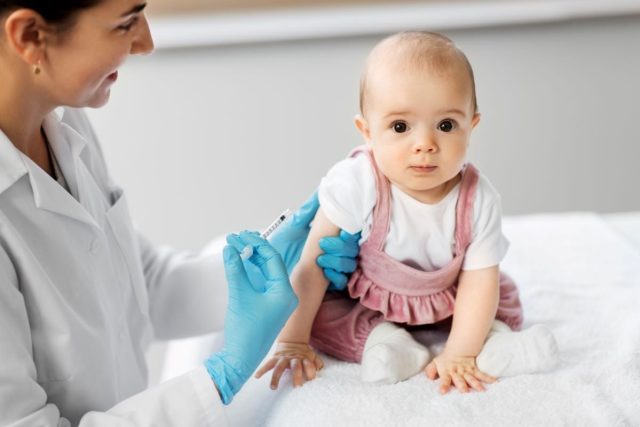Findings seen within a single health care system during the early period of availability
By Lori Solomon HealthDay Reporter
WEDNESDAY, Jan. 8, 2025 (HealthDay News) — Eight in 10 infants received respiratory syncytial virus (RSV) protection during the 2023 to 2024 season, according to a research letter published online Jan. 8 in JAMA Network Open.
Karen B. Jacobson, M.D., M.P.H., from Kaiser Permanente Northern California in Oakland, and colleagues investigated uptake of RSVpreF among pregnant women at 32 to 36 weeks of gestation and nirsevimab among infants aged younger than 8 months, as well as sociodemographic factors associated with uptake within the early period of availability. The analysis included electronic medical record data among 17,251 infants born to mothers aged 15 to 49 years in a single health system between Oct. 17, 2023 (when nirsevimab became available; RSVpreF became available October 25), and March 31, 2024.
The researchers found that 33.9 percent of infants were exposed to only the maternal RSVpreF vaccine, at a median gestational age of 34.0 weeks, while 40.9 percent of infants received only nirsevimab (median age, 4 days). Only 2.7 percent of infants were exposed to both maternal RSVpreF and nirsevimab, and of these, 31.1 percent were born preterm and 24.1 percent were admitted to the neonatal intensive care unit. Infants of mothers younger than 25 years were less likely than infants of mothers 35 years and older to receive only RSVpreF (26.4 versus 37.9 percent), but thy were more likely to receive only nirsevimab (44.2 versus 40.1 percent). Infants of Asian mothers had the highest exposure to RSVpreF and/or nirsevimab (86.7 percent), while infants of Black mothers had the lowest exposure (70.2 percent).
“The availability of two different RSV protection methods in sufficient supply may have contributed to an increased proportion of infants protected against RSV, which may help mitigate disparities,” the authors write.
Several authors disclosed ties to pharmaceutical companies, including Pfizer, which manufactures the RSVpreF vaccine, and Sanofi, which manufactures nirsevimab.
Copyright © 2025 HealthDay. All rights reserved.



















